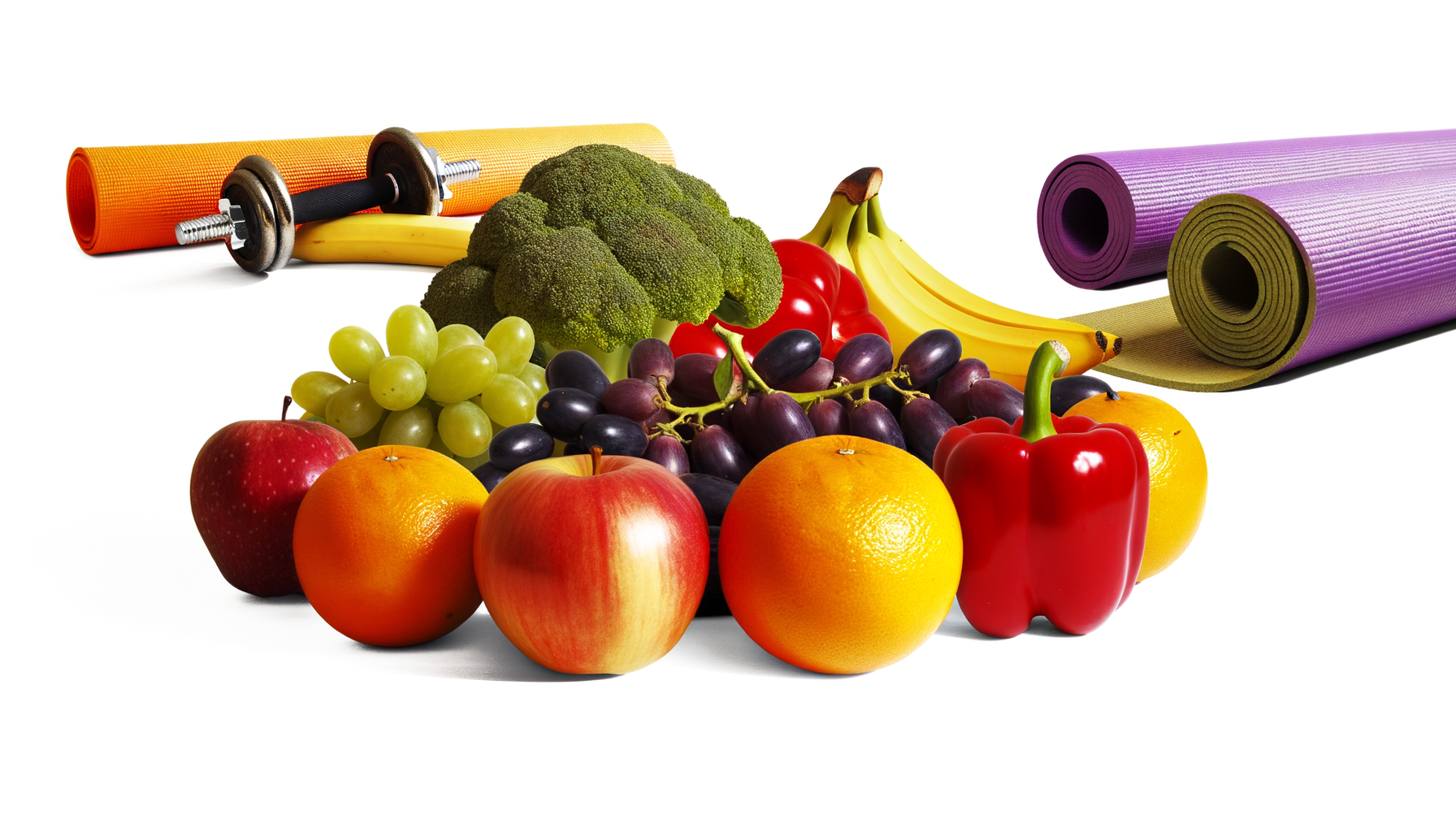Understanding the Connection Between Nutrition and Chronic Pain
Managing chronic pain is a complex task that involves multiple facets of health, including nutrition. The quality of the calories you consume can significantly impact your body’s ability to manage and reduce chronic pain. In this article, we will delve into the role of calorie quality in managing chronic pain and inflammation, and provide actionable tips for incorporating a pain-relieving diet into your lifestyle.
The Impact of Nutrition on Chronic Pain
Nutrition plays a fundamental role in the development, maintenance, and management of chronic pain. Research has consistently shown that dietary changes can have a profound impact on pain management. For instance, diets high in sugar, protein, and fat are associated with higher pain intensity and lower pain thresholds, while plant-based diets may have musculoskeletal pain-relieving effects.
Inflammation and Nutrition
Chronic inflammation is a key contributor to many pain conditions, including arthritis and fibromyalgia. Nutrition directly influences inflammation levels in the body. Foods rich in anti-inflammatory properties, such as omega-3 fatty acids found in fatty fish like salmon, sardines, and trout, as well as in chia seeds and flaxseeds, can help mitigate inflammation and reduce pain.
Key Nutrients for Pain Management
Certain nutrients are particularly beneficial for managing chronic pain:
Vitamin D and Pain Relief
Vitamin D, obtained through sunlight exposure or from foods like salmon, mushrooms, and fortified dairy products, is essential for bone health and can help reduce the risk of chronic pain conditions such as osteoporosis. Ensuring adequate vitamin D intake through nutrition can contribute to improved overall well-being.
Magnesium: The Muscle Relaxer
Magnesium is crucial for muscle function and relaxation. Inadequate magnesium levels can lead to muscle cramps and increased pain sensitivity. Incorporating magnesium-rich foods like leafy greens, nuts, and whole grains into your diet can help maintain optimal levels of this vital mineral, potentially reducing pain associated with muscle tension.
Polyphenols and Antioxidants
Polyphenols, found in fruits and vegetables, have antioxidant and anti-inflammatory properties that can help protect the body from oxidant damage and reduce inflammation. A diet rich in polyphenols can be particularly beneficial for managing chronic pain.
Anti-Inflammatory Diets for Pain Management
Several diets have been identified as beneficial for managing chronic pain due to their anti-inflammatory properties:
Mediterranean Diet
The Mediterranean diet, characterized by high intake of fruits, vegetables, olive oil, and whole grains, is known for its anti-inflammatory effects. This diet includes foods that reduce inflammation and oxidative stress, such as low glycaemic index carbohydrates, olive oil, and a variety of fruits and vegetables.
Plant-Based Diets
Vegetarian and vegan diets have shown promise in decreasing pain in chronic musculoskeletal pain. These diets tend to be high in anti-inflammatory compounds and low in pro-inflammatory foods, making them a good option for those managing chronic pain.
Foods to Include and Avoid
Anti-Inflammatory Foods:
- Fruits and Vegetables: Packed with antioxidants, fruits and vegetables like berries, leafy greens, and cruciferous veggies (broccoli, cauliflower) help combat oxidative stress and inflammation.
- Omega-3 Fatty Acids: Found in fatty fish, chia seeds, and flaxseeds, omega-3s are well-known for their powerful anti-inflammatory effects.
- Whole Grains: Brown rice, quinoa, and oats provide steady energy without causing a spike in blood sugar, which can trigger inflammation.
- Spices and Herbs: Turmeric, ginger, and garlic contain natural compounds that may help reduce inflammation and pain.
- Healthy Fats: Avocado, nuts, seeds, and olive oil offer monounsaturated fats that support cardiovascular health and reduce inflammation.
Foods to Limit:
- Processed Foods: High in preservatives and unhealthy fats, processed foods can increase inflammation in the body.
- Sugar: Excess sugar has been shown to promote inflammation, particularly in processed sweets and sugary drinks.
- Refined Carbohydrates: White bread, pastries, and other refined grains can spike blood sugar and trigger inflammatory responses.
- Saturated and Trans Fats: These fats, found in fried foods and high-fat dairy, can increase inflammation and pain.
Practical Tips for Implementing Nutritional Changes
Gradual Dietary Changes
Changing dietary habits can be challenging, but making gradual adjustments can ease the transition. Start by incorporating one or two pain-relieving foods into your daily meals and gradually expand from there. This approach allows for a sustainable shift towards a more pain-friendly diet.
Stay Hydrated
Dehydration can exacerbate chronic pain and fatigue. Drinking plenty of water throughout the day helps flush out toxins, supports muscle function, and keeps joints lubricated, which may ease pain and stiffness. Aim for at least 2 liters of water per day, and consider increasing this amount based on your activity level and climate.
Balanced Approach
In addition to adjusting your diet, other lifestyle choices—such as regular exercise, stress management, and getting enough sleep—are also key in managing chronic pain. By adopting a healthy diet alongside these practices, you can create a holistic approach to pain management that not only targets symptoms but improves overall well-being.
Working with Healthcare Providers
While nutrition can play a significant role in managing chronic pain, it’s important to work with a healthcare provider to develop a comprehensive treatment plan. Dietitians and healthcare professionals can help assess your dietary intake, identify deficiencies, and recommend supplements or dietary changes tailored to your needs. For example, if you are considering using a tool like the Calorie Calculator Cloud to track your nutritional intake, consulting with a healthcare provider can ensure that you are making the most effective use of such tools.
Conclusion and Next Steps
Managing chronic pain through nutrition is a powerful and natural approach that can significantly improve your quality of life. By focusing on anti-inflammatory diets, incorporating key nutrients, and making gradual dietary changes, you can take control of your health and reduce chronic pain.
If you are ready to start your journey towards better pain management through nutrition, consider the following steps:
- Consult a Healthcare Provider: Discuss your dietary needs and any potential deficiencies with a healthcare professional.
- Use Nutritional Tools: Utilize tools like the Calorie Calculator Cloud to track and optimize your nutritional intake.
- Gradually Change Your Diet: Start by incorporating anti-inflammatory foods and gradually adjust your diet to include more whole, nutrient-rich foods.
- Stay Hydrated and Active: Ensure you are drinking enough water and engaging in regular physical activity to support overall health.
By combining these strategies with a balanced and holistic approach to health, you can effectively manage chronic pain and improve your overall well-being.
For more information on how to optimize your diet and manage chronic pain, explore the Calorie Calculator Plans and consult with healthcare professionals who specialize in pain management and nutrition.








